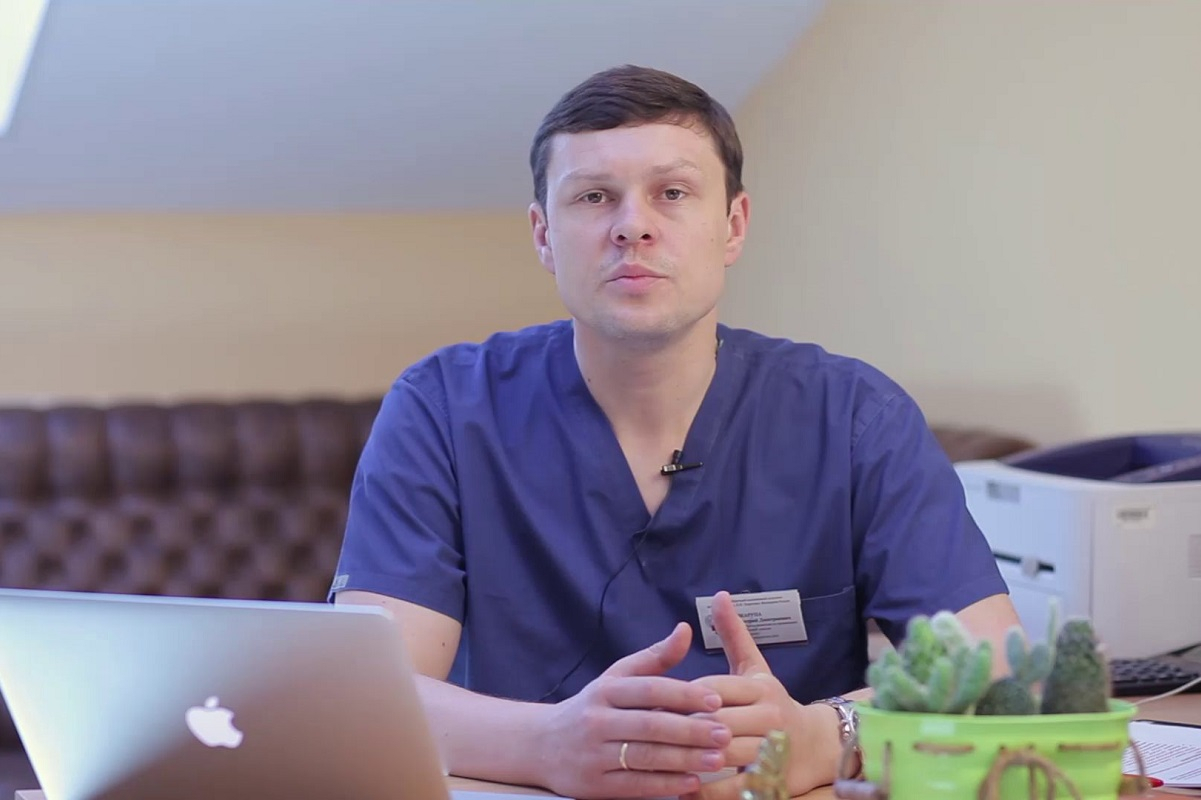A urologist of the Pirogov Clinic of St Petersburg University: ‘We do not offer just another pill, we want to exercise direct control over the trouble spot’

Scientists and clinicians of St Petersburg University are working on neurophysiological methods that will replace aggressive drug therapy for patients with lower urinary tract dysfunctions.
Reconstructive surgery is one of the key priority areas of work of clinicians in the urology department. Every year, more than 2,000 operations of various degrees of complexity are performed here. Doctors use ground-breaking national technologies: polymer endoprostheses are implanted in the area of broken ligaments and a new connective tissue is formed on them, like on a matrix.
Patients from different regions of Russia and from neighbouring countries and beyond seek medical advice from the surgeons of the department. According to Dmitry Shkarupa, Chief Urologist at the Pirogov Clinic of High Medical Technologies of St Petersburg University, such a volume of operations makes it possible to understand the problems at a new level and provide the laboratory with clinical competencies. This will help scientists to create ground-breaking treatment.
World progress in biomedicine is ensured thanks to cooperation within one institution – the university: its scientists from fundamental departments and clinic specialists who are in the forefront of understanding challenges.
Dmitry Shkarupa, Chief Urologist at the Pirogov Clinic of High Medical Technologies of St Petersburg University
The clinicians are responsible for: informing about the actual pathology; defining challenges and adjusting study progress; and evaluating the prospects of using it clinically and economically and the relevance of the innovative approach of exposure.
At present, doctors are not always able to answer why, in the absence of a direct injury to the lower urinary tract or nerve structures, this or that disorder occurs. Among possible causes are: viral and bacterial infections; severe stress; congenital problems in cerebrospinal axis; and disorders associated with the musculoskeletal system. The vast majority of urological patients suffer from functional disorders.
One in five is faced with the challenges of lower urinary tract dysfunctions. They are not fatal, but often dramatically reduce the quality of life of patients and lead to their desocialisation.
Dmitry Shkarupa, Chief Urologist at the Pirogov Clinic of High Medical Technologies of St Petersburg University
As the urologist explained, when there are significant functional disorders, the effectiveness of drug therapy is low: the drugs act non-selectively and cause many side effects. Consequently, patients refuse to take them after two or three months. There are drugs with local effects, but they are also far from ideal. ‘For example, the introduction of botulinum toxin, which only immobilises certain muscles, is in common practice. But this is a very abrupt action and at the same time has a reversible effect,’ said Dmitry Shkarupa.
The clinicians are engaged in the development of new non-drug solutions together with scientists from the University Laboratory of Neuroprosthetics at the Institute of Translational Biomedicine of St Petersburg University under the guidance of Professor Pavel Musienko. The second most important area of activity of doctors at the university clinic is the study of neurophysiology of the lower urinary tract.
The study of the possibilities of using electric and magnetic neuromodulators is one of the advanced research areas in world neurourology. Neuromodulation methods should be based on an understanding of the physiological processes.
More than half of our knowledge about this is hypotheses or a direct extrapolation of research outcomes of animal studies, often without the possibility of exposure, as compared to surgery.
Dmitry Shkarupa, Chief Urologist at the Pirogov Clinic of High Medical Technologies of St Petersburg University
So, first, the University scientists will have to restore the neural chain and the mechanism of the system’s functioning. It means that they are expected to recreate the pathology in vitro and locate the zones that can be affected. They will have to understand the movement paths and the effect of neurotransmitters, i.e. substances that transmit a signal.
One of the promising results of the research carried by the university scientists was an overactive bladder model obtained in experimental conditions on an animal. The researchers managed to recreate the mechanism of the pathological process in rodents. ‘If we have found a laboratory model of the problem, we can work out the methods that cure this pathology,’ Dmitry Shkarupa explained.
Electrical neurostimulation of peripheral nerves is performed on rodents. It helps to form neural chains that can control the work of internal organs. ‘Acupuncture is based on the same principle. But we can act on the nerve more precisely and efficiently and suppress the pathological contractility of the urinary bladder. This is a trouble spot that deprives a person of a normal life,” the doctor said.
It is planned to use magnetic effects to stimulate active centres located in the brain, where the use of electric discharges is impossible. It is possible to induce current in tissues to a depth of 10 cm and activate the necessary zone by the action of a magnetic field with a power of up to 1.5 Tesla created on a coil using magnetic stimulators under Michael Faraday’s law of induction.
According to Dmitry Shkarupa, the methods of magnetic and electrical effects are cost-efficient and handy. A neuromodulator can be mounted on the body in the area of the nerve or implanted directly on it. The patient will be able to enjoy a normal life, while the device will perform a therapeutic function.
The magnetic stimulator has already received a registration certificate as a medical device in Russia. It can therefore be put into use in the near future.
Work on the project is underway. The scientists plan to develop research by applying for grant support. This stage will be followed up by the construction of an electrical neuromodulator in cooperation with industrial partners.

